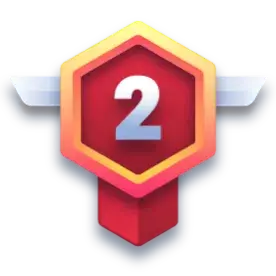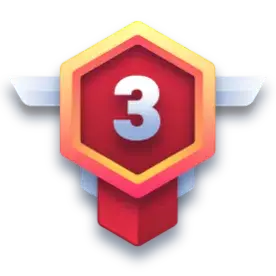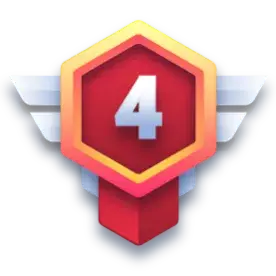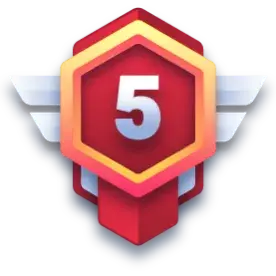Complete
The Test
To Know Your
English Level

Coming Soon

Coming Soon
Online English Language Test
Not sure your English level? Take our short quiz and find out

Coming Soon

Coming Soon
Why Take our Online
English Language Tests?
Choose the Right English Course
Before you decide to go on an English language course abroad, you need to know where you’ll be starting from and what your strengths and weaknesses are. This will allow you to pick an English course where you will focus on your specific needs.
Set Goals
Without taking an English language test, it’s hard to determine what goals are archievable - once you know what your level is at the moment, you’ll have a clear idea of what skills you need to improve in order to reach a higher level of English.
Measure Your Progress
If you’ve been studying English for a while, our online tests will allow you to identify your progress so far and how far you can go on a language stay abroad. Taking the test again during and after your English course abroad, will also allow you to determine how far you’ve come.
Your Result
will be one of the few possible levels
-
Level 1
Starter
-
Level 2
Elementary
-
Level 3
Pre-Intermediate
-
Level 4
Intermediate
-
Level 5
Upper
Intermediate -
Level 6
Advanced
Starter

Start here if you are a beginner who wants to practice and solidify your basic language skills.
Listening skills
Students are able to understand simple, standard speech which is very slow and is carefully articulated. Students can recognise familiar words and very basic phrases concerning themselves, their family and immediate concrete surroundings when people speak slowly and clearly.
Speaking skills
They can interact in a simple way, provided the other person is prepared to repeat or rephrase things at a slower rate of speech and help with formulation. They can ask and answer simple questions in areas of immediate need or on very similar topics.
Reading skills
Students can understand very short, simple texts, for example on notices and posters or in catalogues, picking up familiar names and basic phrases one at a time and rereading as required.
Writing skills
At this level, students can write a short, simple message or postcard, for example sending holiday greetings. They can fill in forms with personal details, for example entering name, nationality and address on a hotel registration form.
Elementary

At this level you will have a basic ability to understand and exchange information on familiar topics in a very simple way.
Listening skills
Can confidently take part in basic, factual conversations. For example, where does your friend study? She studies at Big Ben Academy, KL.
Speaking skills
Can go to a shop where goods are on display and ask for what they want. For example, can I have this drink please?
Reading skills
Students are able to understand short, simple texts containing high frequency vocabulary and share international expressions. They can find specific, predictable information in simple everyday material such as advertisements, prospectuses, and timetables.
Writing skills
Can write short, simple notes and messages relating to matters in areas of immediate need, linking a series of simple phrases and sentences with simple connectors like ‘and’ , ‘but’ and ‘because’. They can write a very simple personal letter, for example thanking someone for something.
Pre-Intermediate

This level will allow you to go beyond the basic level. You will continue to learn new vocabulary and acquire grammar skills that will help you communicate in different day to day situations.
Listening skills
Can take part in ‘ Small talk ‘ and express simple opinions. Example, This looks like a good party. Yes, and everyone’s wearing funny clothes.
Speaking skills
Can ask for what you want and exchange basic information with others. Example, Who was first in the queue?
Reading skills
Can understand words with simple descriptions of people, events, ideas and opinions. Example, I am sad because it is raining.
Writing skills
Can write a short letter with basic factual information. Example, your name, age, where you live, etc.
Intermediate

If you are already experienced in English, this level will allow you to strengthen your ability to describe things and situations in the conditional and past tenses, develop your writing skills and improve your coherence.
Listening skills
Can take part in a casual conversation for a reasonable period of time. Example, How was your camping holiday this year? Did you get washed away in all that rain? When we got there the camp site was closed because of flooding, but we were really lucky the tour company offered us a cottage for the same price.
Speaking skills
Can communicate confidently about familiar topics. Describe experience, events , and deal with many situations in an English only environment.
Reading skills
Can understand what is said in personal letters, even where colloquial language is used.
Writing skills
Can write simple letters stating facts and events.
Upper Intermediate

Designed for students who already have a high level of English. Upper Intermediate teaches you to clearly understand complex texts. You will be able to express yourself correctly in all forms of past tense and perfect your use of adverbs and prepositions.
Listening skills
Can take part in conversations on a range of topics .Example, conversations about events currently in the news.
Speaking skills
Can communicate confidently about many topics. And can talk with native speakers without difficulty and with a degree of spontaneity.
Reading skills
Can understand what is said in personal letters, even where colloquial language is used.
Writing skills
Can write letters expressing opinions and giving reasons.
Advanced

Designed for our more experienced students. At this level you will continue to learn new words in English and improve your skills in analyzing and understanding structure and coherent text.
Listening skills
Can take part in conversations on a range of abstract topics with a good amount of fluency and variety of expression.
Speaking skills
Can express yourself fluently in almost any situation, without the need to search for expressions.
Reading skills
Can read quickly enough to cope with an academic course.
Writing skills
Can write letters on any subjects with good expressions and accuracy.
